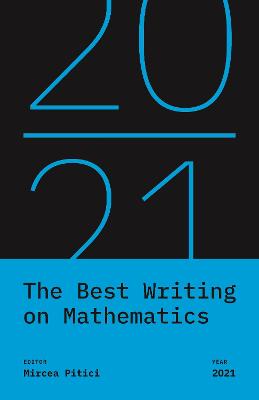Best Writing on Mathematics
2 total works
In addition to presenting the year's most memorable writings on mathematics, this must-have anthology includes an introduction by editor Mircea Pitici. This book belongs on the shelf of anyone interested in where math has taken us--and where it is headed.
The year's finest mathematical writing from around the world
This annual anthology brings together the year's finest mathematics writing from around the world-and you don't need to be a mathematician to enjoy the pieces collected here. These essays-from leading names and fresh new voices-delve into the history, philosophy, teaching, and everyday aspects of math, offering surprising insights into its nature, meaning, and practice, and taking readers behind the scenes of today's hottest mathematical debates.
Here, Viktor Blasjoe gives a brief history of "lockdown mathematics"; Yelda Nasifoglu decodes the politics of a seventeenth-century play in which the characters are geometric shapes; and Andrew Lewis-Pye explains the basic algorithmic rules and computational procedures behind cryptocurrencies. In other essays, Terence Tao candidly recalls the adventures and misadventures of growing up to become a leading mathematician; Natalie Wolchover shows how old math gives new clues about whether time really flows; and David Hand discusses the problem of "dark data"-information that is missing or ignored. And there is much, much more.

